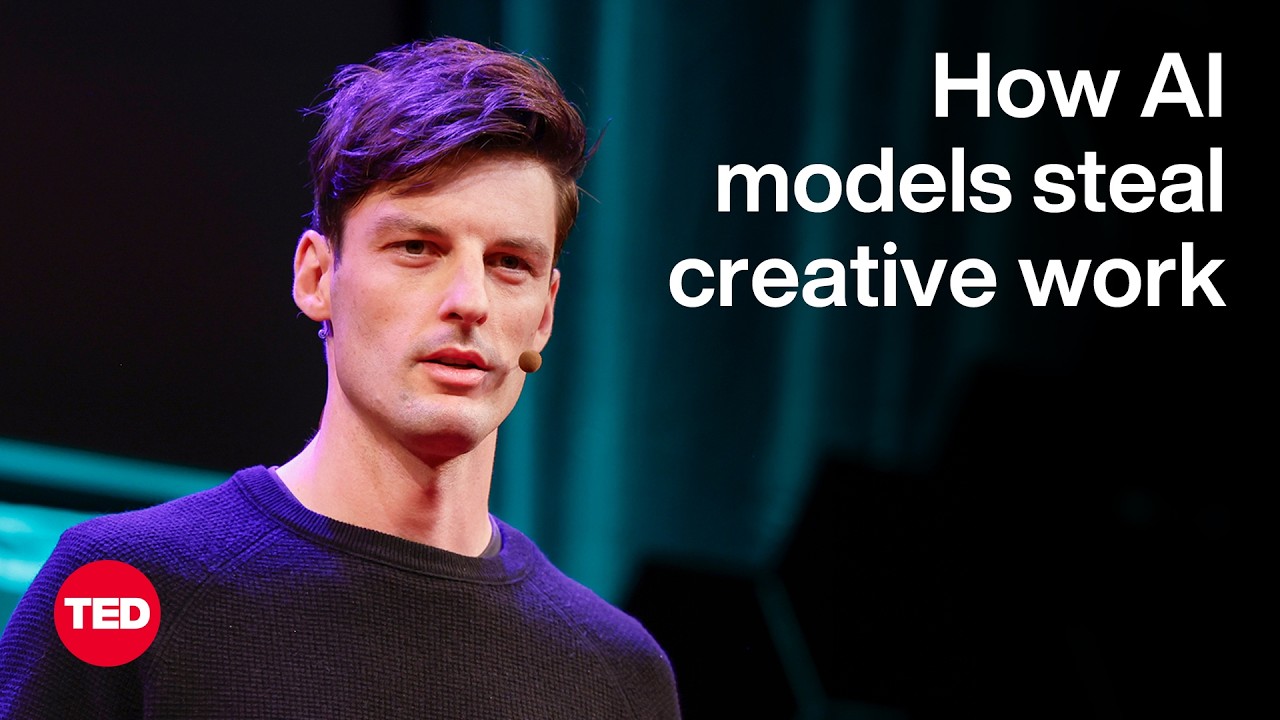In his TED talk, Ed Newton-Rex discusses the ethical issues surrounding generative AI, highlighting how it often uses copyrighted creative works without proper compensation, which undermines artists’ livelihoods and raises legal concerns. He advocates for a licensing model to ensure fair compensation for creators, promoting a sustainable relationship between AI and the creative community.
In the TED talk by Ed Newton-Rex, he discusses the ethical implications of generative AI, particularly how it relies on the creative works of individuals without proper compensation or permission. He identifies three essential resources for AI companies: skilled engineers, computational power, and data. While companies invest heavily in the first two, they often exploit the third—training data—without paying creators, leading to an unfair and unsustainable ecosystem. This practice not only undermines the livelihoods of artists but also raises significant legal and ethical concerns.
Newton-Rex highlights the prevalence of unlicensed training on copyrighted material, citing a study by the Mozilla Foundation that found a substantial percentage of large language models trained on datasets containing copyrighted works. He emphasizes that generative AI competes directly with the original creators’ work, as AI models can produce similar content quickly and easily. This competition has already begun to impact the creative industry, with reports of declining incomes for artists and reduced demand for freelance writing tasks since the introduction of AI tools.
The speaker argues that the current legal framework surrounding copyright is being challenged by the practices of AI companies, which often claim that their training falls under the fair use exception. However, creators and rights holders dispute this, asserting that mass exploitation of their work cannot be justified under fair use. With numerous lawsuits pending against AI companies, the legal landscape is evolving, but creators are already feeling the negative effects of unlicensed AI training.
To address these issues, Newton-Rex advocates for a licensing model similar to those used in other creative industries. He points out that many AI companies resist licensing their training data, citing impracticality and cost concerns. However, he argues that licensing is feasible and beneficial, as it allows for fair compensation to creators while fostering a more sustainable relationship between AI and the creative community. He shares examples of companies that have successfully implemented licensing agreements for their training data.
In conclusion, Newton-Rex calls for a shift in the AI industry towards respecting the rights of creators and ensuring that their work is not exploited without permission. He believes that a mutually beneficial relationship between generative AI and human creativity is possible, but it requires a commitment to ethical practices, including licensing. By advocating for transparency and accountability in AI training, he hopes to pave the way for a future where both AI and creators can thrive together.
